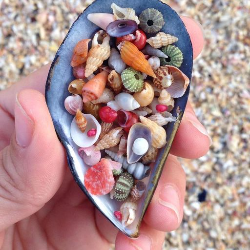General
FAQ
3 min
a series of common questions people have about slate faq docid 5mipyouqpivg8i3s asdhfaq block node have as its children? docid 5mipyouqpivg8i3s asdhfaq docid 5mipyouqpivg8i3s asdh why is content pasted as plain text? one of slate's core principles is that, unlike most other editors, it does not prescribe a specific "schema" to the content you are editing this means that slate's core has no concept of "block quotes" or "bold formatting" for the most part, this leads to increased flexbility without many downsides, but there are certain cases where you have to do a bit more work pasting is one of those cases since slate knows nothing about your domain, it can't know how to parse pasted html content (or other content) so, by default whenever a user pastes content into a slate editor, it will parse it as plain text if you want it to be smarter about pasted content, you need to override the insert data command and deserialize the datatransfer object's text/html data as you wish what browsers and devices does slate support? slate's goal is to support all the modern browsers on both desktop and mobile devices however, right now slate is in beta and is community driven, so its support is not as robust as it could be it's currently tested against the latest few versions of chrome, edge, firefox and safari on desktops and it does not work in internet explorer on mobile, ios devices are supported but not regularly tested chrome on android is supported on slate 0 47 but is not currently supported in slate 0 50+ though there is currently work being done on one ( https //github com/ianstormtaylor/slate/issues/3786 https //github com/ianstormtaylor/slate/issues/3786 ) if you want to add more browser or device support, we'd love for you to submit a pull request! or in the case of incompatible browsers, build a plugin for older browsers, such as ie11, a lot of the now standard native apis aren't available slate's position on this is that it is up to the user to bring polyfills (like https //polyfill io https //polyfill io ) when needed for things like el closest , etc otherwise we'd have to bundle and maintain lots of polyfills that others may not even need in the first place for clarity, slate makes no guarantees that it will work with older browsers, even with polyfills and at present, there are still unresolved issues with ie11
🤔
Have a question?
Our super-smart AI,knowledgeable support team and an awesome community will get you an answer in a flash.
To ask a question or participate in discussions, you'll need to authenticate first.
